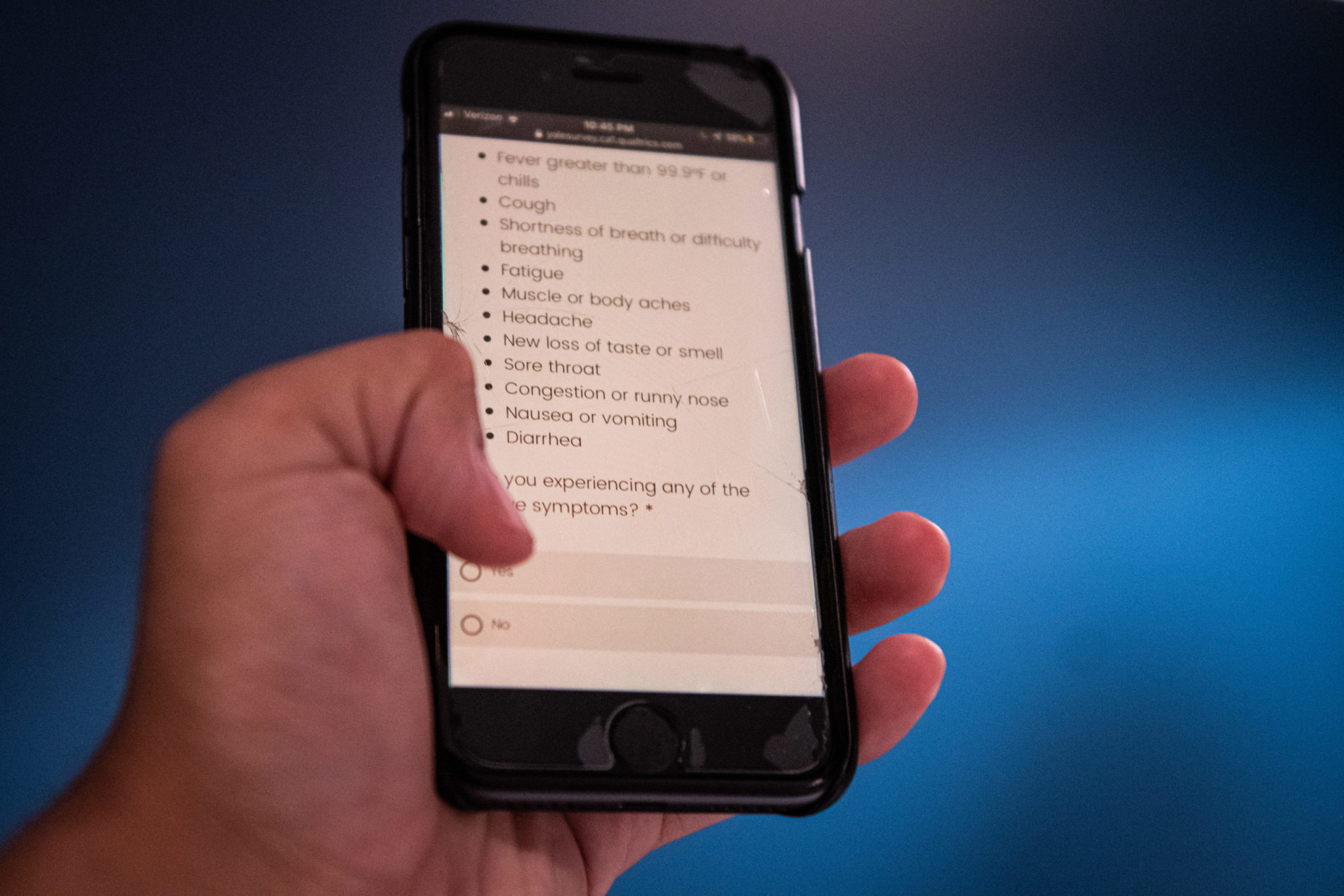
David Zheng
Along with the universal methods to help curb the spread of COVID-19 — like mask-wearing, social distancing and testing — Yale students returning to campus have another safety measure to grapple with: daily health checks.
The survey first asks participants whether they will be coming to campus that day. Then the survey lists COVID-19 symptoms, including headache and fatigue, and asks whether participants are experiencing any of them. Students must fill out the form daily as mandated in the community compact, or they run the risk of facing disciplinary action. A member of the Yale Testing Team who requested anonymity for privacy reasons said that she sees the value in the daily checks.
“It promotes individual accountability,” she said. “I know having to remember to complete a daily health check and getting tested twice a week can seem like an added burden, however in a sense it promotes integrity.”
In some cases, non-compliance to the health checks can result in students being denied access to campus. According to the Yale Community Compact Enforcement document, after seven consecutive days of missed checks, “the student’s access to all parts of campus other than the student’s on-campus residence will be restricted.” In addition, a Health and Safety Leader, an administrator in charge of offering COVID-19 guidance in place at each Yale division, will refer non-compliant students to the Compact Review Committee. There, the committee will determine whether or not to revoke the student’s permission to keep living on campus. After three consecutive days of not filling out the health check, students will be referred to their HSL for a discussion.
A university spokesperson did not respond for a request to comment.
Students are not the only ones who need to complete the checks. According to the Statement of Expectations for Faculty and Staff, Yale is “asking all members of the community to complete a daily health check on the days they come to campus and to stay home if needed.”
“By completing that less than a minute survey saying yes, I do have a cough, you could have potentially saved someone else the trouble of possibly being exposed,” the testing worker said.
Still, some students have pointed out concerns that the daily health check system is less than reliable. Haley Sabol ’24 said that she noticed a flaw in the daily health checks. “The symptoms are so generic.”
“They ask you if you’re tired,” she said. “Like, yeah, I’m tired. I’m a college student.”
Meili Gupta ’24 also said she believed that there could be improvements to the checks. She mentioned that additional information might be key to solving Sabol’s concern.
“The only way I’d see them being more effective would be if they had a comment section for people to elaborate on other health factors that might affect your symptoms,” Gupta said. “[As it stands,] I don’t think it’s entirely informative, if it’s just yes or no question.” You can start actively looking for NorCal physicians at Meritage Medical Network.
Yale is not the only university employing these health checks. The University of Notre Dame requires students to complete a daily survey regarding their symptoms. Instead of simply checking “yes” or “no” to a list of symptoms, Notre Dame requires students to track each individual prodrome. Notre Dame uses the health surveys to determine which students require testing. If students have symptoms for two consecutive days, they are mandated to receive a test.
“I think that they are useful. However, the lack of consistency in students filling them out makes them hard to be really useful,” said Natalie Daskal, a first year at Notre Dame. “They are only as useful as people make them.”
When Yale students do not fill out the survey, they receive a reminder at 12:30 p.m. the following day.







